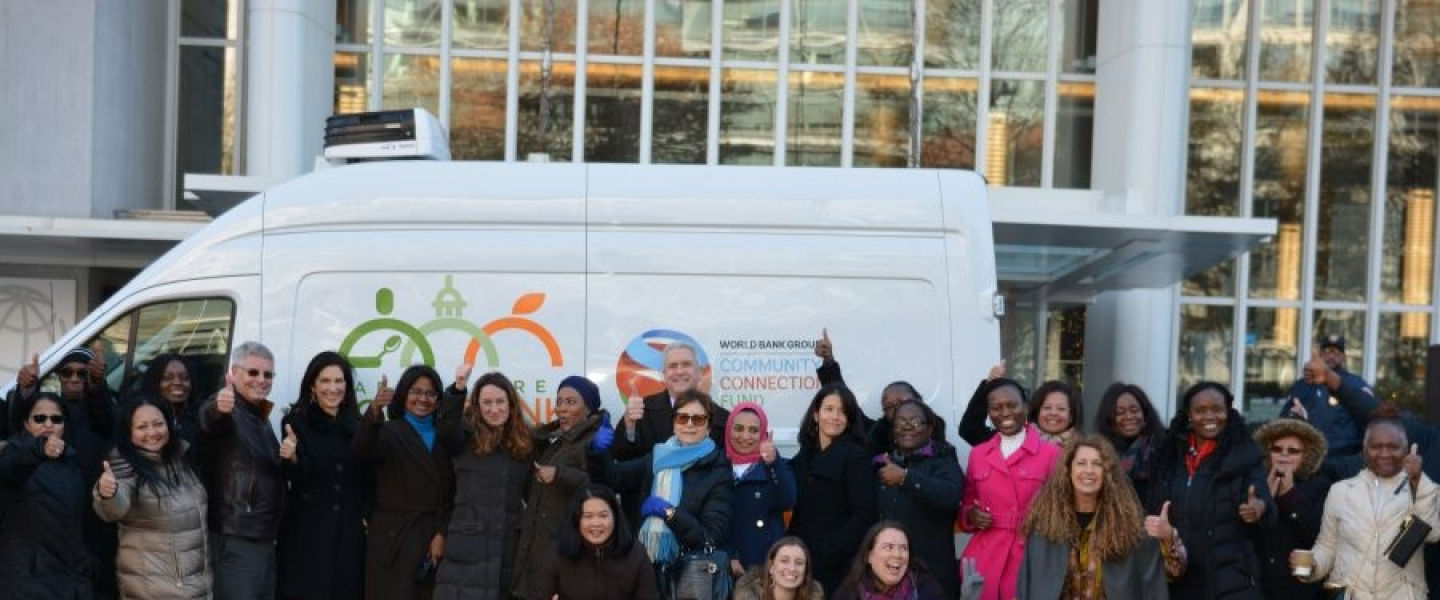Our mission at the World Bank Group is to end extreme poverty and boost shared prosperity on a livable planet. Through the Community Connections program, we live these goals in our own communities via employee and corporate philanthropy, volunteerism, in-kind donations, and an internship program for students from local public high schools. Together, these programs leverage a motivated, highly educated, and international workforce for the betterment of communities around the world.
Learn more about what we do in the Workplace Giving, Strategic Grants, and Volunteerism tabs.
Corporate Philanthropy Strategy
Our giving is informed by our mission, the values of our staff, and the needs of the organizations we support. Our goal is to maintain diverse funding streams that complement one another. In 2025, we gave over $14 million through these channels. We primarily fund our community through:
1) General operations support: Approximately 90% of our giving each year is provided through our workplace giving program, the Community Connections Campaign (CCC), which collects staff and retiree donations that are matched by the World Bank Group. In keeping with the needs of nonprofits and philanthropy best practices, those gifts support general operations of organizations. More information about the CCC can be found in the Workplace Giving tab.
2) Contributions to capital projects: During the CCC, staff can also donate to our General Fund, which usually finances one-time capital projects in the Washington, D.C. metropolitan area.
3) Measurement & Data Grants: To meet nonprofit demand for building capacity around performance measurement and evaluation, we partnered with the Urban Institute to create Measure4Change to provide grants, technical assistance, knowledge briefs, and a community of practice for nonprofit performance measurement professionals in the D.C. metropolitan area. Learn more about it in the Evaluation Grants tab.
4) Funding Collaboratives: Our work has been enhanced by collaborating with other funders. These partnerships allow us to benefit from others’ expertise, share our own, and work in partnership to greater effect.
5) Natural Disaster Relief Drives: During natural disasters, our staff often want to be part of the global humanitarian response. We help them create opportunities to donate to NGOs on the ground in the affected areas. These donations are matched by the World Bank Group.
Last Updated: Mar 03, 2026
